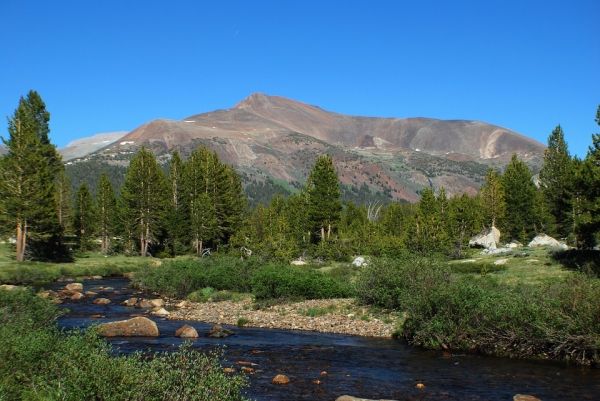Woodlands along streams and rivers are an important part of California’s diverse ecology. They are biodiversity hotspots, providing various ecosystem services including carbon sequestration and critical habitat for threatened and endangered species. But our land and water use have significantly impacted these ecosystems, sometimes in unexpected ways.
A team of researchers, including two at UC Santa Barbara, discovered that some riparian woodlands are benefitting from water that humans divert for our own needs. Although it seems like a boon to these ecosystems, the artificial supply of water begets an unintended dependence on this bounty, threatening the long-term survival of natural forest communities. The paper, published in the Proceedings of the National Academy of Sciences(link is external), spotlights the need for changes in the way water is managed across the state.
“We need to be more intentional in incorporating ecosystem water needs when we manage water—both for aquatic organisms and species on land,” said lead author Melissa Rohde, a groundwater scientist at The Nature Conservancy who led the research as a doctoral student at State University of New York College of Environmental Science and Forestry (SUNY-ESF). “These forest ecosystems are in a precarious state because we have disrupted the natural hydrologic processes that these plant species rely upon to support and sustain key life processes.”
Read more at University of California - Santa Barbara
Photo Credit: Hear2heaL via Pixabay


